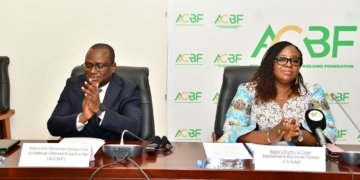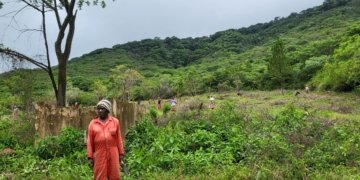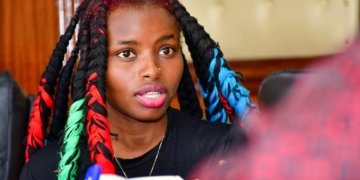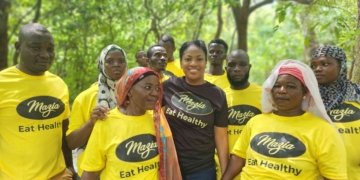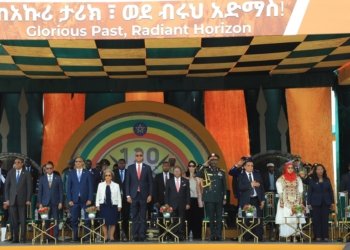LIBREVILLE, Gabon (BG) – Gabon’s forestry sector is emerging as a cornerstone of the nation’s economy, contributing to employment, exports, and fiscal revenues.
Thanks to conservation and sustainable practices, according to the World Bank, Gabon’s forests have become a significant source of employment and exports in the timber industry while playing a crucial role in global climate regulation.
However, challenges in sustainable management and economic diversification persist, raising questions about the sector’s long-term trajectory in the context of global climate and biodiversity goals.
The country’s forestry sector accounted for 3.2% of GDP and 6% of exports in 2023, positioning itself as a key driver of economic activity.
Forestry has also become Gabon’s largest private employer, providing nearly 15,000 jobs. These achievements come amid a broader effort to align the sector with United Nations Sustainable Development Goals (SDGs) and biodiversity objectives, particularly SDG 15, which focuses on the sustainable use of terrestrial ecosystems.²
Gabon has implemented significant policies, including banning log exports and developing the Nkok Special Economic Zone, to boost local wood processing and enhance revenue streams.
Between 2016 and 2023, forest-related revenues quadrupled to 41.9 billion CFA francs (approximately $70 million). These measures demonstrate Gabon’s commitment to adding value locally rather than relying on raw material exports.³
Despite these advancements, the sector faces sustainability challenges. Illegal logging and inefficiencies in wood traceability systems continue to undermine Gabon’s potential for long-term conservation and economic benefits.
Fiscal reforms, such as revising forestry codes and adopting digital traceability systems, are essential to combating these issues and increasing transparency.⁴
Aligning Gabon’s forestry strategy with global initiatives, such as the Paris Agreement and the UN Biodiversity Framework, is critical.
According to the United Nations, sustainable forestry is essential for achieving climate resilience and biodiversity protection, particularly in Central Africa, where Gabon’s rainforests play a vital carbon sequestration role.⁵
As Gabon undergoes political transitions, experts stress the importance of balancing fiscal sustainability and environmental stewardship.
Strong governance, efficient public spending, and private-sector collaboration will be essential in navigating this complex economic and environmental landscape.⁶
Gabon’s forestry sector, while promising, must evolve to meet the twin demands of economic growth and conservation.
By fostering innovation and prioritizing sustainability, Gabon can position itself as a leader in Africa’s green economy and a global model for sustainable forest management.⁷
Gabon’s participation in the Forest & Climate Leaders Partnership (FCLP) at COP29 underscores its commitment to advancing forest protection and climate goals.
The High-level Event on Forest Finance at COP29⁸ in Baku, Azerbaijan, in November 2024 emphasized the need to harness climate finance to protect, conserve, and restore forests, aligning with Gabon’s efforts to implement fiscal reforms and digital traceability systems to combat illegal logging and promote sustainability.
The FCLP co-organized events facilitating global dialogue on forest and climate action, showcasing progress and collaboration, which complements Gabon’s national strategies in the forestry sector.
These developments highlight Gabon’s proactive role in global climate discussions and its dedication to implementing sustainable forestry practices in line with international climate agreements.
In October 2024, Brigadier General Maurice Ntossui Allogo, Gabonese Minister of Water and Forests, reiterated the Central African country’s commitment to protect 30% of its land, freshwater, and marine areas by 2030. By placing nature at the heart of its development, Gabon is considering national priorities and the well-being of the Gabonese people.
Footnotes
- Author’s comments based on the World Bank’s 2024 Gabon Economic Update.
- World Bank Gabon Economic Update 2024; UN Sustainable Development Goals Report 2023.
- World Bank Gabon Economic Update 2024.
- World Bank Gabon Economic Update 2024.
- UN Paris Agreement and UN Biodiversity Framework Report 2023.
- Author’s comments based on World Bank recommendations and UN development priorities.
- Author’s comments on findings from the World Bank report and UN policy frameworks.
- COP29 Congo Basin: high-level dialogue
